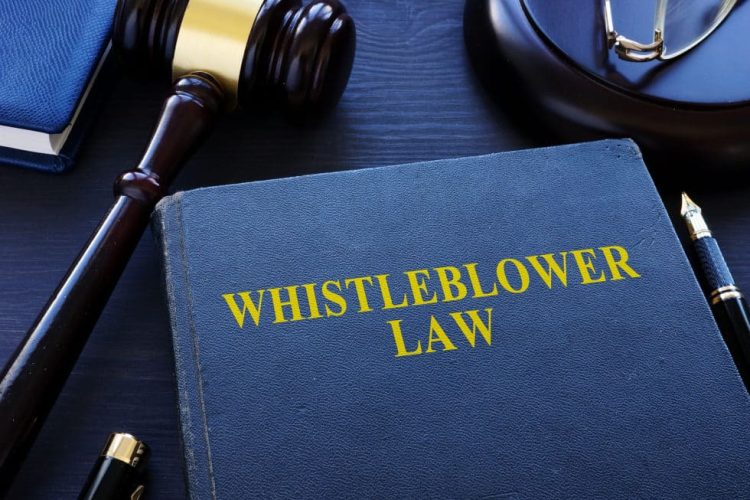Employees who speak up about illegal or unethical behavior in the workplace take a significant risk—sometimes putting their careers on the line to do the right thing. In Washington, D.C., both local and federal laws offer whistleblower protections designed to shield workers from retaliation, including wrongful termination. But what exactly do those protections cover? And what can you do if you were fired after raising concerns?
This article will walk you through the key whistleblower laws in D.C., what qualifies as protected activity, and how you can take action if you’ve been wrongfully terminated for blowing the whistle.
What Is a Whistleblower?
A whistleblower is an employee who reports illegal, unsafe, or unethical practices in the workplace. These disclosures may involve:
- Fraud or financial misconduct
- Discrimination or harassment
- Wage and hour violations
- Public safety threats
- Health code violations
- Environmental issues
- Government waste or abuse
In many cases, whistleblowers report internally to supervisors or HR. Others may file complaints with outside agencies, such as the Equal Employment Opportunity Commission (EEOC), Department of Labor, or law enforcement.
Whistleblower Protections Under D.C. Law
Washington, D.C. has one of the strongest local whistleblower protection laws in the country: the D.C. Whistleblower Protection Act (DCWPA). This law primarily protects government employees, including those working for D.C. agencies, departments, or public schools.
Under the DCWPA, it is illegal to fire, demote, discipline, or otherwise retaliate against a government employee for:
- Disclosing violations of law, rule, or regulation
- Reporting gross mismanagement or waste of public funds
- Reporting abuse of authority or threats to public health or safety
- Refusing to engage in illegal conduct
Even if the report turns out to be mistaken, the employee is still protected—as long as they had a reasonable belief that the issue was unlawful or dangerous.
Whistleblower Protections for Private Sector Employees
While the DCWPA applies to public employees, private sector workers in D.C. are also protected under several federal and local laws, depending on what they report.
Some key protections include:
- The D.C. Human Rights Act – Protects private employees from retaliation after reporting discrimination or harassment.
- The Fair Labor Standards Act (FLSA) – Protects employees who report wage and hour violations.
- The Occupational Safety and Health Act (OSHA) – Protects workers who raise concerns about workplace safety.
- The False Claims Act – Offers protections (and potential financial rewards) to those who report fraud against the government.
- The Sarbanes-Oxley Act (SOX) – Protects employees of publicly traded companies who report securities fraud or violations.
- The Dodd-Frank Act – Offers whistleblower protections in financial industries, particularly regarding securities and commodities law violations.
Under these laws, employers cannot take adverse action—such as firing, demoting, harassing, or denying promotions—because of a protected disclosure.
What Counts as Retaliation?
Retaliation can take many forms, some obvious and some subtle. If you were a whistleblower and then experienced any of the following, you may have a claim:
- Sudden termination or layoff
- Demotion or reassignment to less favorable duties
- Pay cuts or denial of raises
- Harassment or isolation by coworkers or supervisors
- Negative performance reviews that conflict with your record
- Threats, intimidation, or verbal abuse
Even if your employer claims the firing was unrelated, a close timing between your report and the termination can support a retaliation claim.
Steps to Take if You Were Wrongfully Terminated as a Whistleblower
If you believe you were fired in retaliation for whistleblowing, take the following steps:
1. Document Everything
Keep copies of emails, reports, complaint filings, performance reviews, and written communication with your employer. Record the timeline of events and identify any witnesses.
2. Know the Filing Deadlines
Different laws have different statutes of limitations. For example:
- Complaints to OSHA must usually be filed within 30 days.
- D.C. Human Rights Act claims must typically be filed within 1 year.
- False Claims Act retaliation claims generally have a 3-year limit.
3. File a Complaint with the Proper Agency
Depending on the nature of your complaint, you may need to file with:
- The EEOC
- OSHA
- The U.S. Department of Labor
- The D.C. Office of Human Rights
- The U.S. Securities and Exchange Commission (for financial whistleblowers)
4. Consult an Employment Attorney
These cases can be complex, and employers often try to justify termination with unrelated performance claims. A lawyer can help you assess your claim, gather evidence, and take appropriate legal action.
Remedies Available to Whistleblowers
If you succeed in a wrongful termination claim based on whistleblower retaliation, you may be entitled to:
- Reinstatement to your job
- Back pay with interest
- Front pay, if reinstatement isn’t possible
- Compensation for emotional distress
- Punitive damages, in cases of egregious misconduct
- Attorneys’ fees and costs
In some federal cases, whistleblowers may even receive a percentage of recovered government funds, especially under the False Claims Act.
Final Thoughts
Whistleblowers play a critical role in exposing illegal activity and protecting public interest. If you were fired for speaking up in D.C., the law may be on your side.
Whether you work for the government or a private company, understanding your legal rights and acting quickly is key. Don’t let fear of retaliation silence you—and don’t assume you’re out of options if you’ve already been terminated.
Consulting with an experienced wrongful termination attorney can help you determine whether your rights were violated and how to move forward. We recommend wrongful termination attorney dc.


